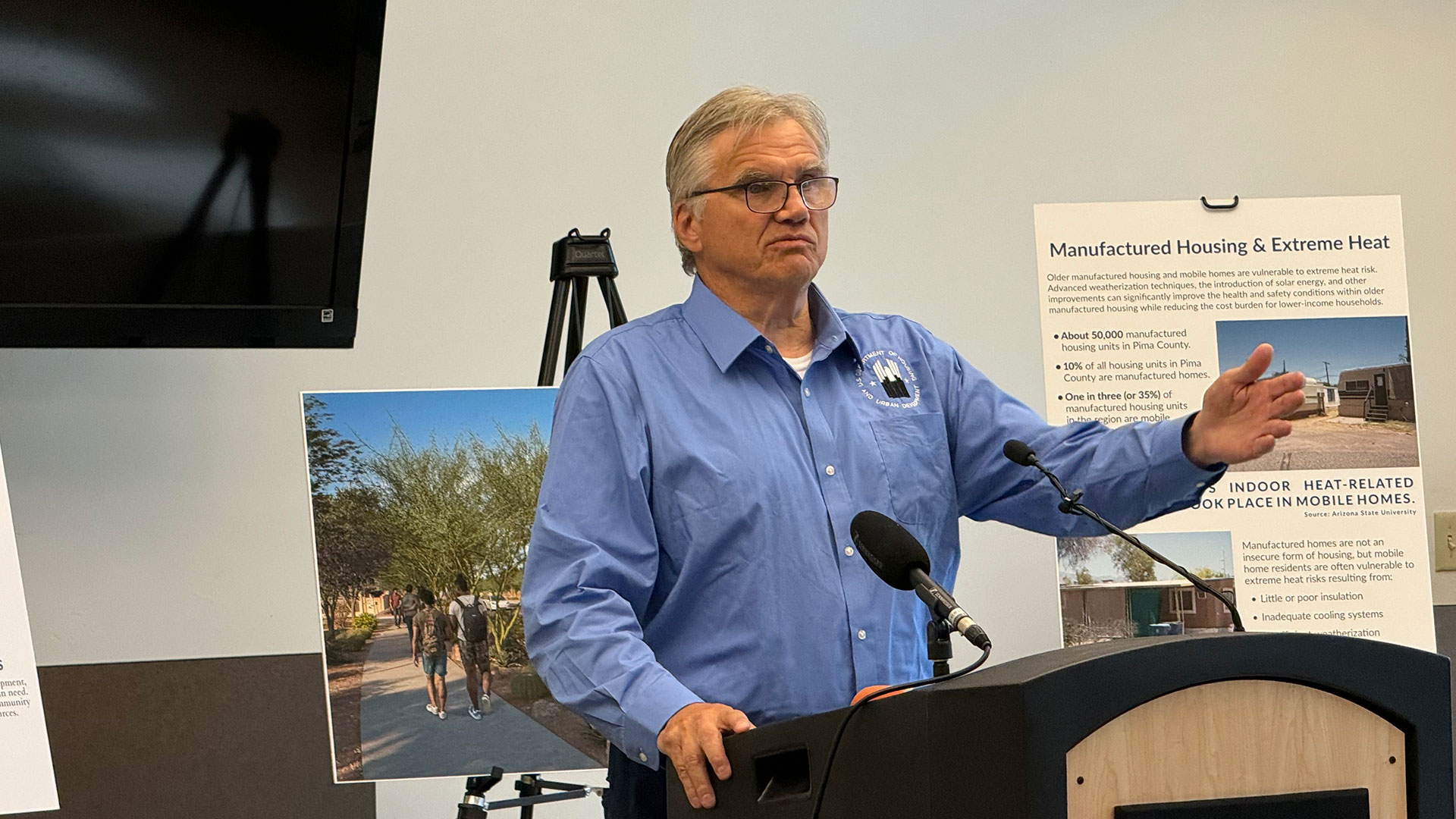 Principal Deputy Assistant Secretary for Public and Indian Housing Richard Monocchio announces new Housing and Urban Development guidelines on financial assistance for air conditioning costs in Tucson, Ariz., on Thursday, June 13, 2024.
Principal Deputy Assistant Secretary for Public and Indian Housing Richard Monocchio announces new Housing and Urban Development guidelines on financial assistance for air conditioning costs in Tucson, Ariz., on Thursday, June 13, 2024.
The Department of Housing and Urban Development announced a rule change that will allow public housing authorities to offer more financial assistance for the cost of air conditioning.
Public housing residents currently receive subsidies to help cover the cost of utilities. But according to Assistant Secretary for Public and Indian Housing Richard Monocchio, families who lived in hot areas were still at a disadvantage until now.
“The subsidy did not cover the costs of air conditioning,” he said. “And I've seen this all over the country. It bothered me that residents, especially older residents, families with young children weren't turning the air conditioning on because they couldn't afford it.”
According to Monocchio, at least 600,000 homes lack central cooling systems across the country.
The federal rule change, announced Thursday at Martin Luther King Apartments, a public housing complex in downtown Tucson, allows public housing authorities to increase utility allowances for low-income residents or waive excess fees from trying to keep their homes cool.
Public housing authorities can now “choose to provide relief to any family in public housing that requests it, for excess utilities charges due to severe or extreme heat,” according to a press release.
Tucson Mayor Regina Romero said Tucson can put the newly available funds to work right away, citing the city council’s unanimous passage of the city’s first ever Heat Action Roadmap at their June 4 meeting.
“The wonderful thing about this new rule change with HUD and the federal government is that they're catching up with Arizona, with Tucson, because we have a heat mitigation roadmap. We are acting fast and furiously in terms of not just adapting to climate change, but also mitigating,” she said.
Romero said funding priorities include upgrading low income housing with energy-efficient cooling systems.
“This includes essential services like roof replacement and HVAC repairs to ensure homes are safe and sustainable,” she said. “We will have better insulation, modern cooling systems, solar panels and other improvements that help keep homes cool and reduce energy costs, especially for low income households."
The new guidance goes into effect immediately.

By submitting your comments, you hereby give AZPM the right to post your comments and potentially use them in any other form of media operated by this institution.